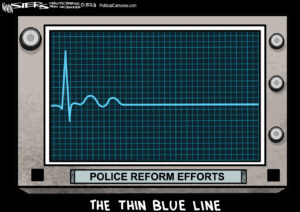Rot and Rehabilitation in the American Penal System
Rachel Kushner's new novel set in a women's prison brims with morally tainted characters who are also victims of repressive and dehumanizing incarceration. Scribner
Scribner
“The Mars Room”
A book by Rachel Kushner
What does it mean to “get tough on crime”? If the answer is meting out lengthy prison sentences to those rightly convicted of felonies, it’s an entirely reasonable proposition. But if getting tough on crime also entails psychological abuse of such offenders once they’re jailed, as is so often the case in the U.S., then it’s a different story—one not just ethically unacceptable, but utterly lacking in rehabilitative potential. “The Mars Room,” a new novel, tells that story, and is all the more commendable for having the strength of its convictions; author Rachel Kushner refrains from taking the easy way out and presenting the reader with an innocent protagonist. Though diffuse (touching as it does on myriad facets of incarceration, American-style) and more than a little uneven, “The Mars Room” brims with arresting vignettes populated by characters who are morally tainted, yet also victims of a needlessly repressive and dehumanizing penal system.
Kushner, best known for her novels “The Flamethrowers” and “Telex from Cuba,” both of which were finalists for the National Book Award, lives in Los Angeles. Stanville, the state prison in the Central Valley where much of the novel is set, may be fictional, but thanks to the author’s firsthand research, it resembles any number of correctional facilities across California and beyond. Just what goes on at Stanville is about to become daily life for Romy Hall: “The Mars Room” opens with 29-year-old Romy, recently convicted of murder, on a bus transporting prisoners from county jails to the big house. “In our closeness to the scumbly land beyond the meshed window,” she relates of the bus ride, which takes place at night, “I longed for reality to twist itself like a bag and tear a hole from the twisting, rupture the bag and let me out, release me into that no-man’s-land.”
Click here to read long excerpts from “The Mars Room” at Google Books.
Romy shifts back and forth between the debasement she endures at Stanville over the years and a far less compelling account of her upbringing and adulthood in the seedier neighborhoods of San Francisco (Kushner herself lived in the Bay Area for a while). This includes a portrait of her job as a stripper and lap dancer at a particularly unsavory joint called the Mars Room, where she made the fateful acquaintance of Kurt Kennedy, a regular who became besotted with her—and whom she would murder.
Even before the bus reaches its destination, you receive more than an inkling of the treatment its passengers can expect there. When one of them, a morbidly obese woman, loses consciousness for unknown reasons and slowly slides off her seat, an unresponsive “human mound slumped on the floor of the bus,” the correctional officers do not instruct the driver to head to a hospital. At Stanville, the woman is pronounced dead.
“When you see lights even higher than stadium lights, you are at prison,” notes Romy upon arriving at her new home. While she and the others are being processed, a young pregnant woman known as Button goes into labor. Because Romy and fellow prisoner Sammy defy orders that they refrain from helping her, they are shunted off to administrative segregation—a kind of prison within the prison, also known as “ad seg”—once the baby is born and the commotion has ended. Meanwhile, since Button has no relative or friend who might claim the baby within 48 hours, her newborn is not only removed from her care, but becomes a ward of the state. A similar calamity befalls Romy some time later; her mother dies in a car wreck and her 7-year-old son Jackson (who sustains non-life-threatening injuries in the same accident) is left without a guardian.
Of course, at a place like Stanville, cruelty is hardly the exclusive preserve of correctional officers. The women themselves are guilty of horrendous crimes. In a fit of rage and protectiveness, Romy killed the infatuated Kurt Kennedy for stalking her and Jackson—he even followed them when they moved from San Francisco to L.A.—despite the fact that the man was disabled and does not appear to have posed any threat. At Stanville, Romy realizes that some of her fellow inmates have yet to exhaust their capacity for violence. When a transgender woman is transferred there after being raped at a men’s prison, she is set upon by an ad hoc gang. And poor Button, who dotes on a baby rabbit much like she would have done with the child the authorities snatched from her, returns to her cell one day to discover that the most psychopathic of her cellmates has boiled and eaten it. “Button crawled into her bunk with the rabbit’s little shirt that she had sewn,” is how Romy describes the heart-rending scene. “She stayed that way for a day.”
Though other characters sometimes take center stage (Sammy, who helped with Button’s delivery, narrates a chapter, while the ill-fated Kurt Kennedy is the subject of two consecutive ones, both related in the third person), those who linger there are three: Romy, of course; Gordon Hauser, a green and tentative English literature instructor at Stanville; and “Doc,” a corrupt and murderously violent L.A. police officer who got his comeuppance and is now understandably keen on keeping his former job a secret from his cop-hating fellow inmates at a men’s prison. Hauser and Doc are distinct from one another and from Romy (all three, incidentally, are white), as well as moderately engaging in and of themselves. Nevertheless, both these male characters remain underwritten, and seem to have been devised for the purpose of drawing attention to the novel’s secondary themes.
With Doc (who doesn’t make the acquaintance of either Romy or Hauser), the theme is obvious enough: the all-too-common and often years-long impunity of dirty cops. When it comes to Hauser, however, Kushner reveals a more ambitious streak. Lovelorn (he was transferred to Stanville following indications he had grown overly familiar with an inmate at another women’s prison), compassionate (he tries to help Romy locate Jackson), and sensitive to humans’ relationship with nature (his abortive Ph.D. dissertation was on Henry David Thoreau), Hauser moves into a small cabin in the sparsely populated mountains overlooking his new place of employment. The chapters revolving around him are peppered with extracts from a Ted Kaczynski reader, which the curious prison teacher has taken to perusing in his spare time. Do the Unabomber’s tirades against society’s despoliation of nature dovetail with Hauser’s observations regarding the remote location of Stanville? Kushner clearly believes that they do, and seems to imply that the ever-expanding prison industrial complex is disfiguring pristine rural America. The notion is thought-provoking, to be sure, but also makes for an odd combination: coyly oblique and self-consciously radical environmentalist.
For more straightforward (and immediately relevant) social commentary, you’re better off looking to the various daily indignities the women suffer behind bars. And for a trenchant indictment of how the penal system fails to prepare inmates for the day they’re released, consider Romy’s bluntly stated point regarding rehabilitation: “They don’t help you with it. You have to do it yourself.” Of course, if, like Romy, you’re a lifer, successful rehabilitation is probably moot. But what of those prisoners who have a realistic shot at parole?
Here, Kushner boldly assails the widespread and almost sacrosanct assumption that there cannot be enough contrition on the part of prospective parolees. The truth proves more complicated. While it is certainly legitimate to stipulate that a person found guilty of a crime show genuine remorse (including empathy with the victim/s) as a condition for the granting of parole, should such a feeling consume him or her, it could cause severe psychological harm. As Romy notes:
Prison was a place where you had to be strong to get through each day. If you thought about some awful act you’d committed, every day, in graphic detail, enough to prove to a parole board that you had insight, the proverbial insight they wanted, needed, to let you go home, you might lose your mind.
Ironically, such an outcome would prevent you from becoming a functional member of society in the event of your release, thereby defeating the purpose of parole.
As Kushner demonstrates time and again, the rot within America’s carceral realm goes even deeper. For the U.S. penal system, the fact that the law deprives you of your freedom if you commit a crime doesn’t suffice as punishment. In prison, at every conceivable opportunity your offense is used as a cudgel to bludgeon you. “The Mars Room” features instances of this phenomenon astonishing in their malice as well as their illogicality. When a frantic Romy tries to inquire about Jackson’s condition after news of the car accident that injured him and killed his grandmother, a correctional officer (who happens to be a woman) responds with this sneeringly self-righteous remark: “Hall, if you’d wanted to be someone’s mother, you should have thought of that before.”
Your support matters…Independent journalism is under threat and overshadowed by heavily funded mainstream media.
You can help level the playing field. Become a member.
Your tax-deductible contribution keeps us digging beneath the headlines to give you thought-provoking, investigative reporting and analysis that unearths what's really happening- without compromise.
Give today to support our courageous, independent journalists.







You need to be a supporter to comment.
There are currently no responses to this article.
Be the first to respond.